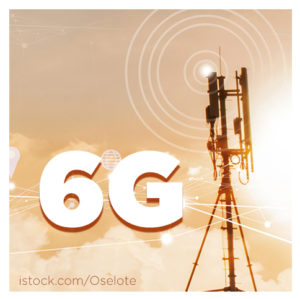In a wide-ranging virtual discussion on 6G on Tuesday, former FCC Commissioner Michael O’Rielly expressed concern about the pace that new spectrum is opening for wireless use. O’Rielly stressed that new spectrum bands will be needed. “I am somewhat troubled by where we are as a nation for 5G.” The last Commission made getting more high and mid-band spectrum devoted to 5G a reality, he said. But beyond the next auction slated for October, he’s “worried by the slow pace at which it’s being opened for commercial purposes.”
Even Congress has noticed, according to the former Commissioner. While 7 GHz, 8 GHz and 12 GHz have been discussed as possibilities for wireless service, “these bands are nowhere near ready for 5G services,” he cautions. “I think this [global] race is a real challenge to this administration and this Commission needs to redouble efforts to fill the spectrum pipeline.”
“It’s appropriate to consider 6G as a journey,” said O’Rielly, one that will take “longer than the current hype would suggest.” 5G is in its infancy, and it will take the cooperation of industry, academia and government to make 6G a reality, he believes.
The former Commissioner said he’s found the ability to make a difference outside the agency. He’s founded his own consultancy and joined the board of a small wireless integrator and installer — MobileComm Professionals.
Fellow former FCC Commissioner Jonathan Adelstein, who’s now president and chief executive officer of the Wireless Infrastructure Association, said: “We need to get 5G right.” It’s important to get broadband everywhere, he noted and said the wireless industry invests about $30 billion a year on infrastructure deployment. America’s ability to “get connectivity right” translated to better network performance “than the rest of the world in terms of the pandemic,” he emphasized.
Adelstein said a lot of WIA members are looking ahead to 6G. “It takes years to establish the next generation of mobile technology. The business case needs to be there to justify the enormous investments our industry plans – it will cost $275 billion to build out 5G. There needs to be revenue to support that investment, and federal support where it may be lacking in rural areas, to beat countries like China in the race to 5G.”
“We’re doing that in the infrastructure bill,” Adelstein explained. He hopes the House will pass the measure next week or “as soon as possible. Now, we need to make sure it gets implemented by the administration and the states” so that 5G is deployed “as both fixed and mobile wireless and we have the funding to train the workforce” needed for this new technology, Adelstein stressed.
By Leslie Stimson, Inside Towers Washington Bureau Chief





Reader Interactions